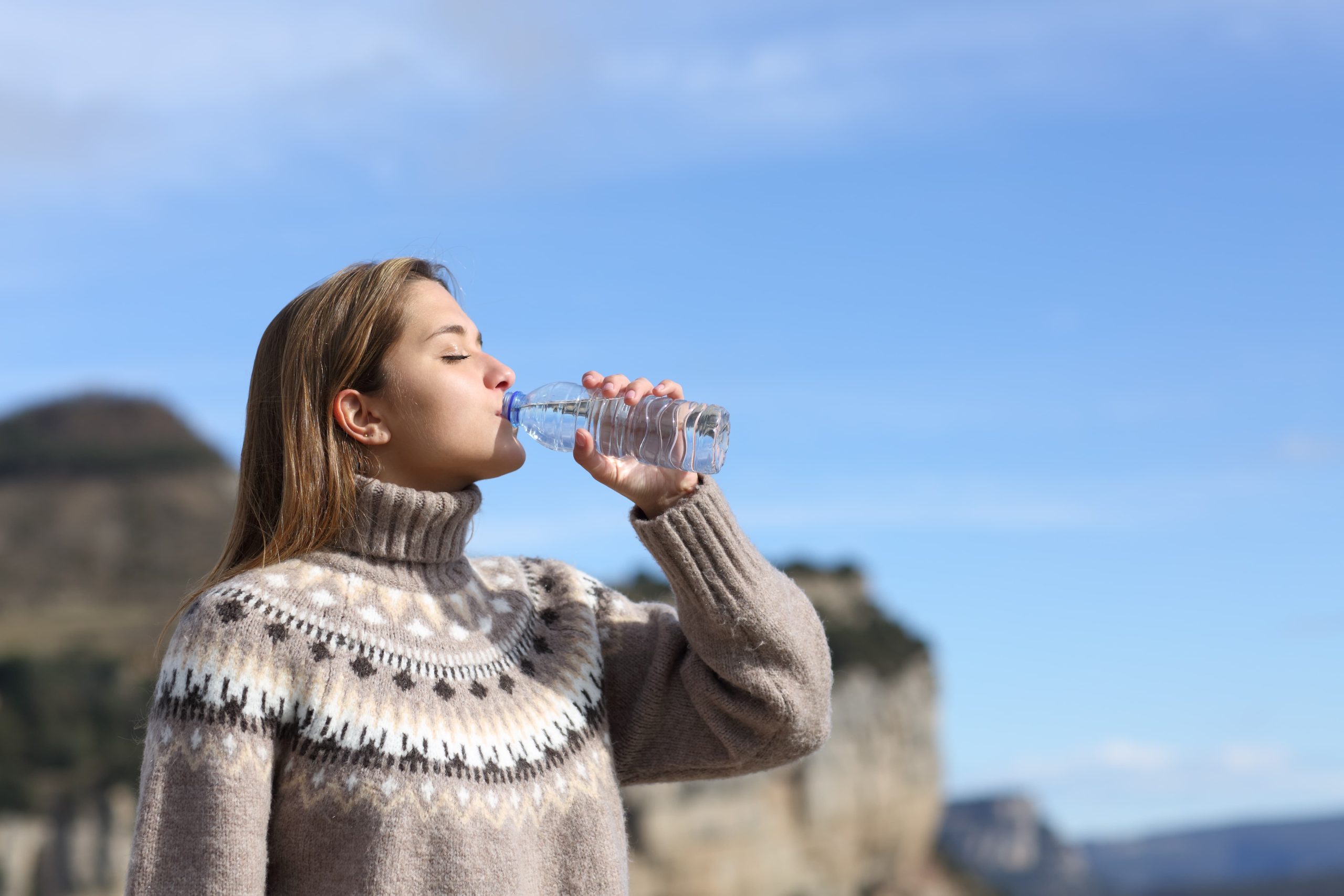
Everybody knows that working in a hot environment, whether indoors or outdoors, can cause an individual to become dehydrated and develop heat cramps or even heat stroke. But did you know that an individual can become dehydrated even in cold environments?
The onset of winter is marked by noticeable shifts in our surroundings, characterized by a drop in temperature and humidity levels. As it gets chilly, it’s crucial to recognize the often underestimated risk of dehydration. The combination of dry air and frequent urination can lead to increased moisture loss from the body.
Major Factors That Can Contribute To Dehydration
1. Indoor Heat
The heat that is present in the home keeps the home warm, but this air is really dry. Spending a lot of time inside the house keeps you exposed to this dry heat for much of your day, and an individual can lose body fluids and become dehydrated. Especially, for people who are in the habit of using room heaters and their long-term exposure causes dehydration.
2. Wearing Too Many Layers
In winter, piling on too many layers may seem like a cozy choice, but it can lead to unexpected consequences. Excessive clothing can cause increased sweating, leading to dehydration as the body loses vital fluids. Strike a balance between warmth and hydration by dressing appropriately for the weather.
3. Increased Consumption of Alcohol
Alcohol is a diuretic that causes the body to expel a lot of fluid from the blood through the renal system by causing frequent urination. Not drinking enough water post alcohol consumption is often life-threatening and causes severe dehydration.
4. Not Drinking Adequate Amount of Water
During the summer season, when you feel hot you tend to sip water to soothe yourself. However, during chilly weather, we tend to drink less water to avoid going to the washroom frequently. This inadequate water intake during winter can lead to dehydration. It is recommended that men should consume 3.7 liters of water and women take in 2.7 liters per day. This might sound a lot but it is total fluid from beverages and food [1].
Furthermore, reduced water intake and indoor heating can increase fluid loss. Warm up for a healthy winter season with our extensive winter care range. Shop Now
Some of the Common Signs Of Dehydration
Some of the common signs and symptoms of mild dehydration are:
-Chapped lips
-Dry skin
-Dry mouth
-Dark-colored urine
-Headache
-Constipation
-Lack of energy
-Fatigue
Severe dehydration can cause the following signs confusion, rapid heartbeat, and fainting [2].
5 Tips To Stay Hydrated This Winter
1. Always Carry A Water Bottle and Set Hydration Reminders
Take your water bottle everywhere you go. Set hourly reminders on your phone or apps to prompt regular water breaks. This is very important in helping you stay on track and meet your hydration goals.
2. Infuse Your Water With Flavours
In winter for people who don’t like drinking plain water, infused water can be a great way to stay hydrated. Infused water is filled with minerals, antioxidants, and vitamins, which help to boost the metabolism while building immunity.
You can add fruits like strawberries, oranges, pineapple, and kiwi or herbs to add flavor to water
3. Swap Normal Water With Warm Drinks
Swap normal water with warm beverages like herbal tea, soups, or lukewarm lemon water to ensure hydration and comfort in the cold weather. Avoid too much tea or coffee as the caffeine present in it has a diuretic effect that can cause your body to pass excess urine leading to dehydration. [3].
Get the goodness of herbal teas for winter hydration. Explore Our Range Here
4. Eat Foods With High Water Content
Water from beverages and foods is indeed counted as a whole to keep you hydrated. Include water-rich fruits and vegetables such as green leafy vegetables, citrus fruits, melons, tomatoes, and cucumbers that can help meet your daily water needs.
5. Use Humidifiers To Retain Moisture
A humidifier adds moisture to the air, preventing dryness that can lead to increased water loss through respiration. Employing humidifiers in a room can help maintain optimal humidity levels, supporting skin hydration and overall well-being during the colder months.
Invest in a good humidifier to prevent winter dehydration and ensure a comfortable and well-hydrated indoor environment.
Discover Here
In the end, maintaining hydration in winter is vital for overall health. With these simple practical tips in mind simply remembering to drink more water can help you stay hydrated and healthy throughout the winter season. It is important to make yourself aware of dehydration’s symptoms and immediately prevent it by drinking enough fluids. If you suspect that you or someone you know is dehydrated, it is important to seek medical attention.
It is recommended that you promptly seek medical advice.
Consult An Expert
(The article is written by Simran Suri, Assistant Team Lead, and reviewed by Monalisa Deka, Senior Health Content Editor)
References:
1. Are you drinking enough water during the winter months? American Heart Association.[Updated 2019].
https://www.heart.org/en/news/2019/12/19/are-you-drinking-enough-water-during-winter-months#:~:text=In%20general%2C%20the%20federal%20Institute,12%2C%208%2Dounce%20glasses.
2. Taylor K, Jones EB. Adult Dehydration. [Updated 2022]. National Library Of Medicine.
https://www.ncbi.nlm.nih.gov/books/NBK555956/
3. Reyes CM, Cornelis MC. Caffeine in the Diet: Country-Level Consumption and Guidelines. National Library Of Medicine. Nutrients.[Updated 2018].
https://www.ncbi.nlm.nih.gov/pmc/articles/PMC6266969/#:~:text=Although%20tea%20and%20coffee%20contain,if%20consumed%20in%20high%20amounts.